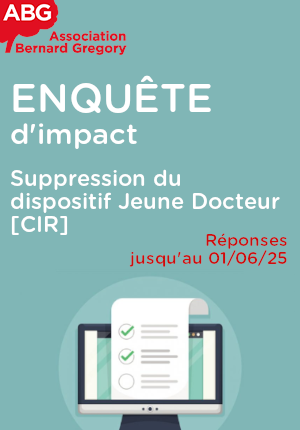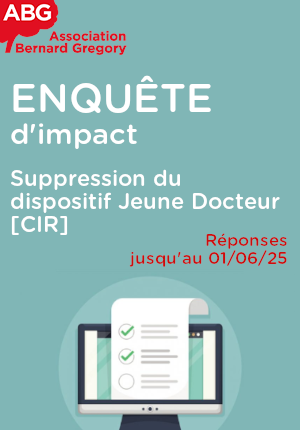Spirométrie virtuelle et techniques de contrôle avancées pour vélo électrique intelligent // Virtual spirometry and advanced control techniques for intelligent electric bicycles
|
ABG-132255
ADUM-66082 |
Thesis topic | |
| 2025-05-28 | Public funding alone (i.e. government, region, European, international organization research grant) |
Université Grenoble Alpes
Saint Martin d'Hères cedex - Auvergne-Rhône-Alpes - France
Spirométrie virtuelle et techniques de contrôle avancées pour vélo électrique intelligent // Virtual spirometry and advanced control techniques for intelligent electric bicycles
- Computer science
vélo intelligent, Spirométrie virtuelle, Échanges gazeux, vélo thérapeutique, modelisation, commande automatique
intelligent bike, virtual spirometry, Gas exchange, therapeutic bike, modeling, automatic control
intelligent bike, virtual spirometry, Gas exchange, therapeutic bike, modeling, automatic control
Topic description
GIPSA-lab mène un projet multidisciplinaire combinant le domaine de l'automatique, la fiabilité et de la physiologie du sport et de l'exercice. Le laboratoire développe un vélo électrique intelligent capable, sur la base des données physiologiques de l'individu, d'adapter la charge de travail pour optimiser le réentraînement à l'effort en toute sécurité et en autonomie chez le patient atteint de pathologie chronique (cardiovasculaires ou métaboliques). Dans ce cadre, l'objectif de la thèse est de concevoir, d'implémenter et de tester des lois de commande avancées qui serviront à établir des niveaux d'assistance électrique adaptés à l'état du patient en termes de sa forme physique et de son niveau de fatigue (condition actuelle et prédite). Nous poursuivons nos recherches initiées avec la thèse de Nadia Rosero 2015-2018 (financée par le gouvernement Colombien) y la thèse de Maxime Chorin 2019-2022 (Thèse financée par un contrat doctoral de l'ED EEATS), en co-encadrement avec Samuel Vergès (Laboratoire HP2, UGA, INSERM).
------------------------------------------------------------------------------------------------------------------------------------------------------------------------
------------------------------------------------------------------------------------------------------------------------------------------------------------------------
GIPSA-lab is leading a multi-disciplinary project combining the fields of automatic control, reliability and sports and exercise physiology. The laboratory is developing an intelligent electric bicycle capable of adapting the workload based on the individual's physiological data, to optimize safe and autonomous exercise re-training for patients suffering from chronic pathologies (cardiovascular or metabolic). In this context, the aim of the thesis is to design, implement and test advanced control laws that will be used to establish electric assistance levels adapted to the patient's condition in terms of physical fitness and fatigue level (current and predicted condition). We are continuing our research initiated with Nadia Rosero's 2015-2018 thesis (funded by the Colombian government) and Maxime Chorin's 2019-2022 thesis (funded by an ED EEATS doctoral contract), co-supervised with Samuel Vergès (HP2 Laboratory, UGA, INSERM).
------------------------------------------------------------------------------------------------------------------------------------------------------------------------
------------------------------------------------------------------------------------------------------------------------------------------------------------------------
Début de la thèse : 01/10/2025
------------------------------------------------------------------------------------------------------------------------------------------------------------------------
------------------------------------------------------------------------------------------------------------------------------------------------------------------------
GIPSA-lab is leading a multi-disciplinary project combining the fields of automatic control, reliability and sports and exercise physiology. The laboratory is developing an intelligent electric bicycle capable of adapting the workload based on the individual's physiological data, to optimize safe and autonomous exercise re-training for patients suffering from chronic pathologies (cardiovascular or metabolic). In this context, the aim of the thesis is to design, implement and test advanced control laws that will be used to establish electric assistance levels adapted to the patient's condition in terms of physical fitness and fatigue level (current and predicted condition). We are continuing our research initiated with Nadia Rosero's 2015-2018 thesis (funded by the Colombian government) and Maxime Chorin's 2019-2022 thesis (funded by an ED EEATS doctoral contract), co-supervised with Samuel Vergès (HP2 Laboratory, UGA, INSERM).
------------------------------------------------------------------------------------------------------------------------------------------------------------------------
------------------------------------------------------------------------------------------------------------------------------------------------------------------------
Début de la thèse : 01/10/2025
Funding category
Public funding alone (i.e. government, region, European, international organization research grant)
Funding further details
Concours pour un contrat doctoral
Presentation of host institution and host laboratory
Université Grenoble Alpes
Institution awarding doctoral degree
Université Grenoble Alpes
Graduate school
220 EEATS - Electronique, Electrotechnique, Automatique, Traitement du Signal
Candidate's profile
Spécialités des Master: Disciplines principale AUTOMATIQUE
et secondaires BIO-ENERGETIQUE et FIABILITE
Candidat ayant effectué un stage de recherche sur ce sujet ou sur des problématiques semblables.
Le candidat devra montrer un forte maitrise en modélisation et simulation numériques, ainsi que des compétences en programmation.
Capacités à rédiger des documents de travail et à travailler en équipe. Lecture et conversation fluide en anglais.
Master's specialities: Main subject AUTOMATIC CONTROL and secondary BIO-ENERGETICS and RELIABILITY Candidates who have completed a research internship on this or similar topics. The candidate must have a strong knowledge of numerical modeling and simulation, as well as programming skills. Ability to write working documents and work in a team. Fluency in reading and speaking English.
Master's specialities: Main subject AUTOMATIC CONTROL and secondary BIO-ENERGETICS and RELIABILITY Candidates who have completed a research internship on this or similar topics. The candidate must have a strong knowledge of numerical modeling and simulation, as well as programming skills. Ability to write working documents and work in a team. Fluency in reading and speaking English.
2025-05-30
Apply
Close
Vous avez déjà un compte ?
Nouvel utilisateur ?
More information about ABG?
Get ABG’s monthly newsletters including news, job offers, grants & fellowships and a selection of relevant events…
Discover our members
 Laboratoire National de Métrologie et d'Essais - LNE
Laboratoire National de Métrologie et d'Essais - LNE  ASNR - Autorité de sûreté nucléaire et de radioprotection - Siège
ASNR - Autorité de sûreté nucléaire et de radioprotection - Siège  PhDOOC
PhDOOC  Nokia Bell Labs France
Nokia Bell Labs France  Ifremer
Ifremer  MabDesign
MabDesign  Groupe AFNOR - Association française de normalisation
Groupe AFNOR - Association française de normalisation  MabDesign
MabDesign  ONERA - The French Aerospace Lab
ONERA - The French Aerospace Lab  CASDEN
CASDEN  Institut Sup'biotech de Paris
Institut Sup'biotech de Paris  Aérocentre, Pôle d'excellence régional
Aérocentre, Pôle d'excellence régional  ANRT
ANRT  ADEME
ADEME  Généthon
Généthon  TotalEnergies
TotalEnergies  SUEZ
SUEZ  CESI
CESI  Tecknowmetrix
Tecknowmetrix








